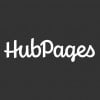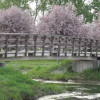Auto-generated Links?
I noticed what appears to be an automatically generated link in one of my Pethelpful articles. I didn't add it, and I can't get rid of it. I can't even see it in edit mode. Even if I delete the word, it just adds a new link at the next instance of that word.
It links out to another Pethelful article (not mine) on the same niche site, so no, it seems unlikely this is a virus or some kind of browser issue. It appears to be a new "feature".
This feature apparently means I can no longer control links in my own articles.
Can we please get some input from staff on what this is and how we can work with it? I do have some questions.We need to know what's up. I hope HP staff let us know soon.
In order to boost link equity and raise the profile of our strongest keywords, we are rolling out an automatic linking tool. This will drive more traffic back to the evergreen side, and we're already using it on a few evergreen and news sites (PetHelpful, Dengarden, and Delishably).
Considering that our breaking news sites do very well, this linking strategy will help drive traffic back to evergreen articles.
Since keywords and their corresponding links are determined outside of the HubTool, there is no way for authors or editors to modify those links within the HubTool.This is about what I expected, but it is nice to hear it officially.
Thank you for the clarification. Seriously. Keeping us updated on this stuff really means a lot to many of us. I hope this strategy works, and if there is anything we ought to be looking out for as we do our updates I hope you can let us know.
My main concern is not knowing where and why these links will appear. I have my own ideas of how I try to interlink my articles, and if what I am doing clashes with these automatic links it could look like a mess.HP needs to keep us informed. We are a team.
I don't think number of links matters. The no apparent rhyme or reason is bothersome to me though. I believe the word has to be typed just right, for example Poodle (provides a link) vs poodle (no link).
I saw a list of 5 breeds, 3 of them were links and 2 were not. I'm assuming because the other two don't actually have them. That article had 5 total links to breeds, and the author had over a dozen links for various other words.
I took a look at one of my articles on Pethelpful and it has 5 auto links in the content, one in the Q&A, and an additional one in the comments. 7 links seems a bit excessive and that doesn't include the 3 "resource" links they made me add a while back.
I'm more curious how having so many links to the same article is going to impact those articles and the ones doing the linking. The three instances I found of German Shepherd went to the same article, which makes me believe they all will. If dozens of new links are now pointing to that one article how is that going to affect Google's ranking?
If authors and even editors don't have any control, I don't see how this can be a good move. Not all articles on niche sites are of top quality and have factual information. Not to mention information that other authors might not agree with.
It would be nice if there could be more control either by editors, authors, or both.
Edit to add: That German Shepherd article I referenced actually has a link to itself in the second sentence. That has to be problematic, yes?I have lots of pins on Pinterest pointing to the same article. I wonder should I delete those? I was reading an article a couple of hours ago too about how links from bad sites that can be out of our control to have removed can negatively affect ranking just like the way links from reputable sites can boost ranking. But there is an option to disavow links.
https://support.google.com/webmasters/a … 8487?hl=enI don't know if it matters, but I guess I view Pinterest and those links differently. Pinterest is a site specifically for linking to articles/websites and those pins I'm assuming are coming from different boards/pins. Those links are also (for the most part) genuine. Someone repins or shares because they want to. Those links add up over time.
Here, dozens if not hundreds of links were all added at once. I don't know if it matters, or if Google can actually differentiate, but I never gave a second thought about Pinterest, because I'm not the only one sharing my articles.
Thanks for the link. I'll look at it tonight. I know pretty much nothing about linking, but it doesn't feel right to have no idea what we as authors are now supporting and recommending via these auto links.I am still working my way through the link, as I do not have a good understanding of all the technicalities of what goes on behind the scenes so to speak, it will take me some time to get a good grasp on what I'm reading.
However, I did find this interesting and I wonder if it only applies to indexed/do follow links and how Google can determine when links are auto generated? Not sure exactly what kind of links these auto ones are, but I can't imagine HP would break Google's spam link policy, even if just to trial run a program?
This is from following the links in the above article for Google's quality guidelines - spam policies - link spam "Using automated programs or services to create links to your site". Is this not what HP is doing? So essentially we now have hundreds, if not thousands of pages that could be seen as spammy per Google's guidelines? Am I misinterpreting that bullet point?
I do not know if this really applies, but we technically can't write for HP without allowing them to continue to link to our articles (even if this trial does not amount to a permanent change). "Requiring a link as part of a Terms of Service, contract, or similar arrangement without allowing a third-party content owner the choice of qualifying the outbound link". Honestly, I do not fully understand what any of that means, but it feels like it could apply to our current situation?
If I could get some clarification on the above two quotes as I continue going through the article that would be greatly appreciated.Is there a quick way to find out if there are links in your articles?
Not that I could find. I also do not think the links are working the same on Delishably & Dengarden as they do on Pethelpful unless it is not rolled out on them yet.
The only links I could find on Delishably were seemingly random words from the news section that linked out to different articles or news. The same word format in articles did not contain a link. Same for Dengarden. All the links I found where in the news, however most of them linked to other news articles vs evergreen ones.Dang! It would be great to access the articles that have links without spending time looking for them. Then, we can monitor our articles with links, as HP can do.
I was hoping to do the same. As far as I can tell not very many of my articles have links, but it will take a while to go through all of them.
I only found one key word so far for Delishably this morning. I'm thinking maybe it is not fully rolled out yet on that site, as last night the word combo wasn't linked in every article like it is today.I'll just have to happenchance it. I don't have time to peruse my articles.
There seems to be a lot of confusion and overthinking going on, regarding links.
Backlinks that Google considers spammy are ignored by the algorithm. They don't negatively affect ranking in the sense that you get punished.
It can affect the rankings, though, if the Google algo suddenly starts ignoring backlinks that it previously viewed positively.I admitted I know nothing about links and how they affect ranking or even (EEAT). I don't even fully understand all the different terminology used when taking about different links.
I don't know why Google claims they ignore bad/spammy links either. Most of what I found seems to be related to other sites linking in. Not necessarily a site creating a bunch of links essentially to itself.
Google's spam policy says not following the guidelines could result in lower rankings or being completely removed from search. Why we would knowingly create links that Google considers spammy? How is that going to help traffic and not hurt rankings at the same time?
I can't imagine a scenario where an article links to itself and Google doesn't find that problematic.While it sounds counterintuitive, I honestly think it's best not to get embroiled too much in Googlespeak. They say things that are so obviously misleading it must be a deliberate policy.
Eugene's idea to delete or disavow Pinterest links looks like a waste of time, in my (humble) opinion.
Matt Diggity gives what I see as an accessible explanation and overview of links and the recent spam update:
https://www.youtube.com/watch?v=Gj8GiHokLxcThanks for the link. I'm always looking for good resources to expand my understanding of the tech side of things. I've bookmarked him for later as well.
Although it still begs the question, why did HP add a bunch of unnatural links using an automated system, when Google released an update to try and help combat that kind of link spam? Even if they are ignored and do not hurt rankings, wouldn't we need to try and add more relevant links to counter balance the ignored or spam links?
I would much rather see a shift in having authors/editors add their own links when appropriate. I know links have been added/taken out over the years, but now it seems like they want links again. Author added links are more genuine and relatable than all these keyword links going to the same article, which in most cases doesn't really relate to the article the link came from. I do not think this automated program is the way to go, but I guess we shall see. I'm just hoping Google doesn't see them as spam and we get yet another negative hit."...why did HP add a bunch of unnatural links using an automated system, when Google released an update to try and help combat that kind of link spam? Even if they are ignored and do not hurt rankings, wouldn't we need to try and add more relevant links to counter balance the ignored or spam links?"
You've created a straw man argument, in my opinion. It's not an accurate reflection of how links work in SEO terms or what the Google spam update was and is about. Your argument only works if things are assumed that aren't true.
My feeling is that it would be better to try and understand the Google update first and then hold an opinion about it afterward but you appear to have rejected that option.I asked for clarification and more resources. I'm trying to learn and understand the update and how linking works. Does it only apply to links from other websites? That seemed to be the focus of the video.
Maybe I should ignore Google's policies, as that is my real problem. The whole generated links=bad (which was also stated in the video as "obviously bad" and not mentioned again). That wasn't something I assumed. I saw it on multiple platforms, I don't know how else to interpret the information when Google & Matt both say auto-generated is bad.
The video you linked talks mainly about paid and guest links, neither of which are the main form of linking on HP. I don't understand the reactive and proactive PR, but I don't think that's really relevant here either for most of us.
Maybe I should have focused on the link insertion at a high volume from relevant articles.
Either way, I'm working through Matt Diggity's other videos about linking to hopefully get a better understanding of how exactly linking works.
That's a solid explanatory answer from HP and much appreciated.
It does address some concerns that I had, namely the linking strategy and relationship between news articles and evergreen content.
Sheesh. Way outside my knowledge base, but it sounds horrible. Clarification from the pooh-bahs is a must.
Hmm, maybe HP are experimenting with interlinking internally using textual links, now that the suggested articles have gone?
I'm just speculating...Like Rupert, I would like clarification. The link may go to an article that contains information that we disagree with. In addition, if someone immediately follows the link, they will have left our article prematurely. I know this was the case with the suggested articles section, but I would be unhappy if a similar feature is returning.
From what I have seen, HP has chosen certain articles about dog breeds to funnel traffic to, and if you mention that breed you automatically get linked to those articles.
I don't want to speculate too much. I really hope HP values the writers enough to explain this instead of maintaining the usual radio silence.
Ideally, it would have been nice if they explained it before implementation.I agree to your last sentence. HP shouldn't test this as a hidden agender. It seems to take the suggested article.
I also want to make clear that I am not convinced this is a bad thing. Right now I am just hoping for some clarification.
This is the article where I spotted it:
https://pethelpful.com/dogs/Essential-S … -New-Puppy
You'll see in the first text capsule the word "Yorkie" links out to another article. I didn't do that and can't change it.
I have seen it in other dog articles as well, but not all. I don't see it in any of my aquarium articles.
Understanding how, when, and why this happens is essential if HubPages expects us to make smart edits and updates to our articles.That looks like an attempt to build internal links.
I remember when I first joined, they were super-keen for everyone to interlink with other HP articles, both one's own and those of other writers.
Later, they seemed less keen on the practice. I seem to remember having at least one internal link snipped. It may be because HP introduced suggested articles and they wanted to use those as a way of linking instead, I don't know. Now we're maybe heading back to textual internal linking.
One of the recent Google updates was very much concerned with linking strategies, I don't know whether that's relevant.I am very much in support of more internal links. However, if HubPages expects us to keep our articles updated they need to give us a heads-up when introducing features like this.
They can't expect writers to be professional and make good choices while at the same time keeping us in the dark about important changes. And if this is just a test, then say so.
I really wish they would at least explain how this works so I know how to deal with it.
For example, what triggers this? I don't see it in all dog articles.
If I include my own internal link in the first text capsule, does the auto link still appear?
Can I write my own "guide" and link to it instead?
I don't really write about dogs very often but if this "feature" expands I see it as a major headache.
As always, HP can alleviate concerns with a little transparency.
Related Discussions
- 80
AI-Generated Content on HubPages
by HubPages 20 months ago
Hi all. As indicated in last week’s press release, parts of The Arena Group have begun using AI to assist with content creation. Although several news articles have erroneously referenced the use of AI on PetHelpful and DenGarden, AI is not currently being used for staff content creation on any of...
- 50
Acceptable Links to Related Hubs
by Eugene Brennan 8 years ago
I've had links to my own related hubs snipped on several occasions (mostly blatant lists at the end of a hub), but some links have been left in place after several snips. So is it acceptable to include a link to a hub which may be very relevant to the specific content in a section of a hub, if it...
- 14
Linking Hubpage, Squidoo, Blogger and Articles
by Patti Ann 16 years ago
Does it make your links less effective if you link your hub to a squidoo lens and then link your lens back to your hub? Or is it more effective just to link your lens, blogger and articles to your hub without links back to them from your hub? I have heard different opinions.
- 28
Optimizing Backlinks
by Brett A Rogers 11 years ago
This is how I understand backlinks. Linking to a webpage that links back to you is more valuable to SEO than not having it link back to you. The more removed this website is from your own the better. For example, linking from one of my hubs to a non-hubpages webpage is more...
- 154
Negative SEO - A Reality
by Dorian Bodnariuc 8 years ago
"Paranoia" must think some of you, and honestly, I used to think the same. I didn't even believe that this was possible, even though Google mentioned that they have ways to detect link spamming. But the reality proved me I was wrong. My Traffic Is Constantly Going DownI did complain a...
- 23
Can You Have Too Many Internal Links?
by Raymond D Choiniere 13 years ago
Hey Veterans,I am curious. Recently Google made changes and many people are or have lost a lot of traffic, and I am wondering if the problem is too many internal links.I only ask because since Google's change, I have lost a significant amount of traffic, however many of my hubs are linked...














